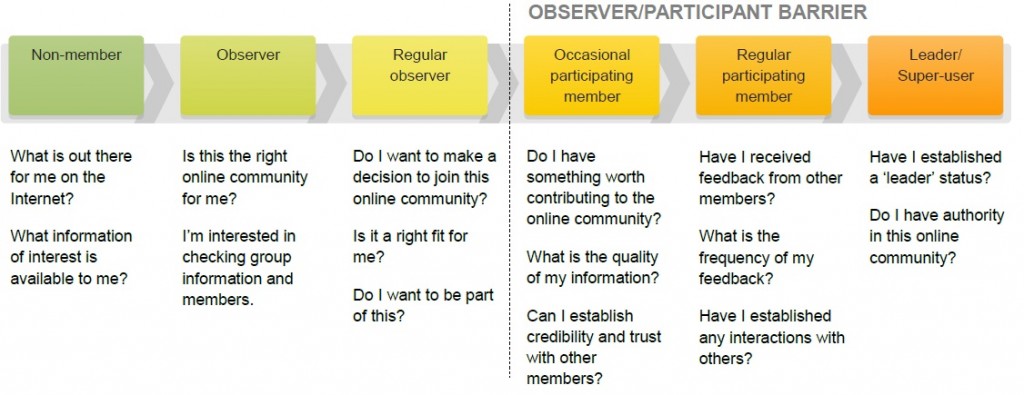I recently came across a great article on social networking that I felt I just had to share. The complete article is attached at the bottom of this post and is being circulated with permission of the Australian Psychological Society and the author, Craig Errey. However, I have also reproduced the article in summarised form within this post for our readers.
Many organisations now recognise the tangible benefits of social media in terms of:
– brand awareness
– market share
– sales referrals
– customer testimonials
– customer loyalty
– disaster response
– cost of customer service
In the US, FICO, a financial services organisation, was able to achieve a 66 per cent increase in sales by encouraging customers to join its online community. Additionally, 10% of FICO’s customer calls are now directed through the online community which has reduced their average customer service call costs.
But while many organisations have responded to such success stories and quickly promoted online forums, quite a few have failed to truly understand the dynamics of how these communities really work. As a result a large proportion of online communities designed for business purposes have failed to grow to a point where the benefits can be realised.
Based on a psychological understanding of online participation, Craig Errey (an online user expert from the Australian Psychological Society’s College of Organisational Psychologists) has created a model of participant engagement to help organisations understand the dynamics of online community membership. He has identified seven user types, as shown in the figure below:
To build a strong online community around a brand, companies first need to understand what attracts people to social networking sites and motivates them to become active participants.
Non Member
To attract the ‘non-member’ who is interested in becoming part of a community, it’s best to make sure the information within your community is easy to search and find.
Observer
To meet the needs of the ‘observer’, it’s important to help them learn that other members in the community can be trusted, can provide help and can benefit from information the ‘observer’ holds.
Regular observer
Individuals at the ‘regular observer’ stage are likely to begin developing a sense of belonging to the community, as they visit more frequently and access valuable information provided by members. Drawing these users across the observer/participant barrier to a more established stage in the process involves encouraging users to reinforce their feelings of belonging to the community by identifying themselves actively as a member. At this stage, it is also important to emphasise the uniqueness of the information the regular observers have to contribute, by supporting the individual’s need for both acknowledgement and self-verification.
Nurturing your community into the future
Once a user has become an active participant, their needs do change and it is important that you try and promote all such members towards higher member levels (ie. “leader or super-user”). Although it is still important to provide an active participant a sense of attachment, belonging and identity, it is also important to put in place recognition and reward schemes. Here are some tips on how to do so effectively:
Does your organisation need assistance?
Although the Psychologists at HC do not specialise in social networking, many Organisational Psychologists do. Why not consider getting help from an Organisational Psychologist to help your business create an effective online presence? You can get started by dropping us a line for a referral via [email protected] or by using the APS Find a Psychologist service at the following website: http://www.psychology.org.au/FindaPsychologist/Default.aspx
Further Reading
This blog summarises a tip sheet written by Craig Errey for the Australian Psychological Society. For further details and to view the full tip sheet please click here
Comments or Thoughts
Have you had any experience setting up online communities? We’d love to hear your thoughts so just drop a comment below!


